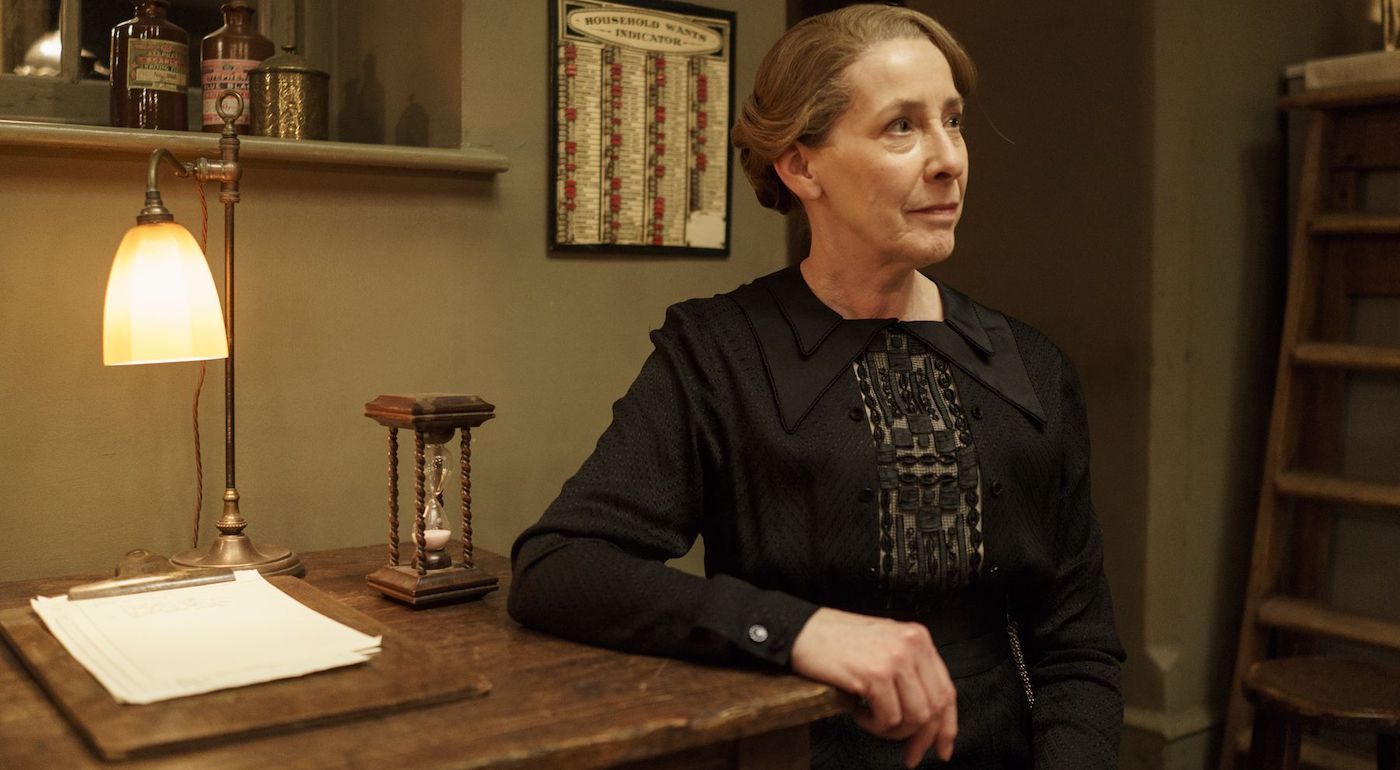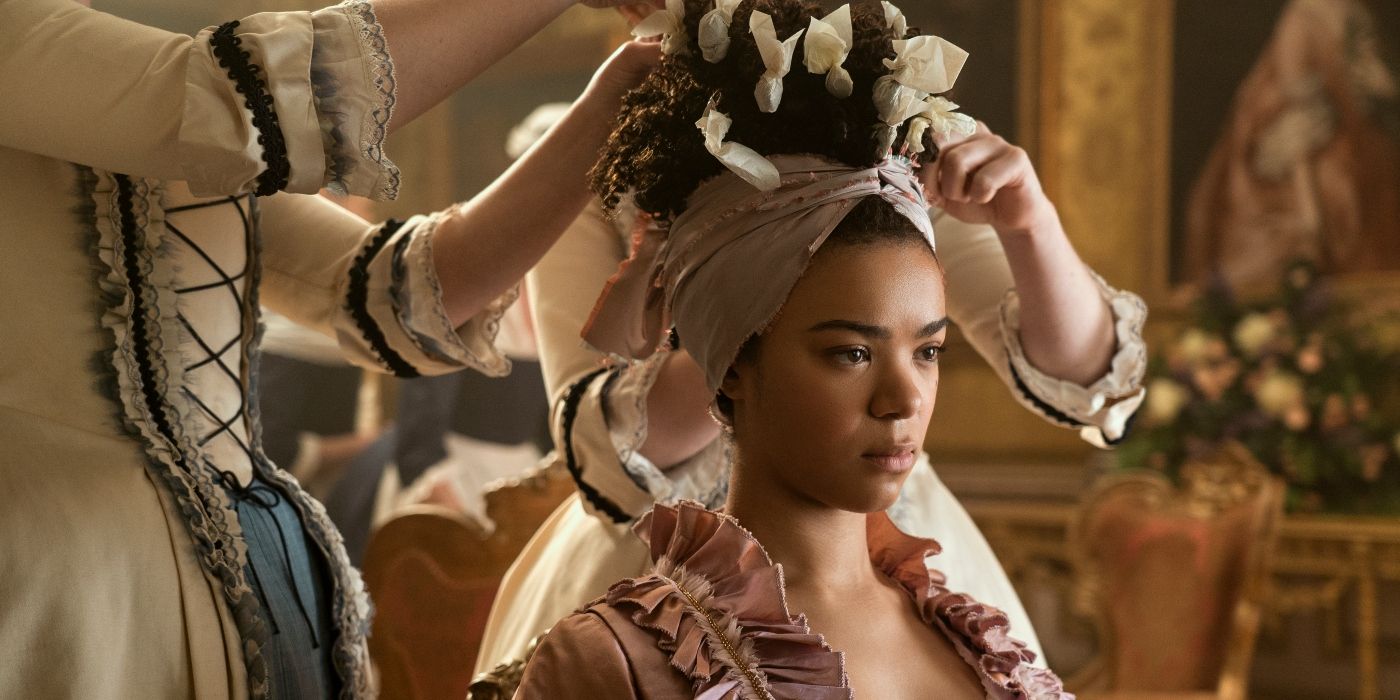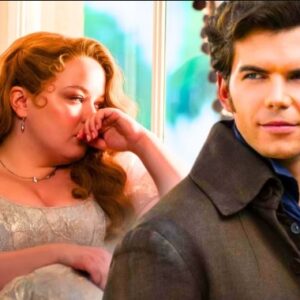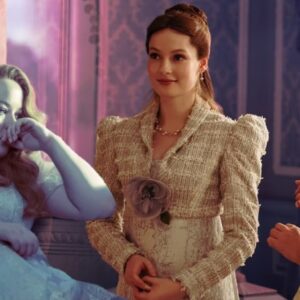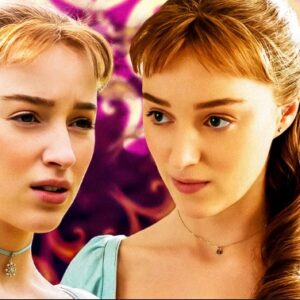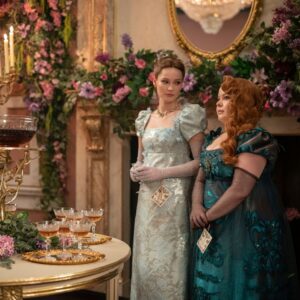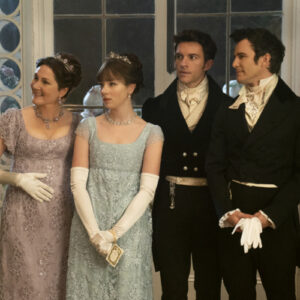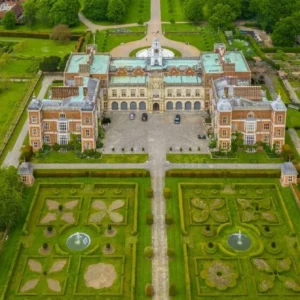It’s a move that overlooks centuries of class struggle.
Period dramas such as Bridgerton capitalize on the novelty of extravagant balls, expensive gowns and upper class scandal. They depict a lost world of luxury and opulence, where food is served on crystal platters and stately homes are fully equipped with cooks, dressers, scullery maids, groomsmen and housekeepers. Servants bustle on and off our screens, where they might be spotted for a brief second delivering important letters or fixing a lady’s hair.
When period dramas show us an interpretation of how people lived in the past, a decision is made whether to represent the working class as fully developed characters, or as mere props. Often, the class divide of a period such as the 1800s Regency era is ignored entirely, in favor of lighter, more digestible storylines. This typically creates entertainment that is somewhat one-dimensional, where uncomfortable questions of class are steadfastly avoided, which can leave period pieces feeling surface-level and frivolous.
‘Bridgerton’s Cast of Silent Servants
The recent miniseries Queen Charlotte: A Bridgerton Storyprovides ample examples of this, where the show tells the story of the queen’s (India Amarteifio) tempestuous early days of marriage to King George III (Corey Mylchreest). Its royal focus draws acute attention to the presence of servants, where the king and queen’s multiple homes are shown to be even more well-staffed than Bridgerton’s townhouses.
The King and Queen’s personal attendants are key parts of the series, but they are shown to be removed from the household’s other servants, where it is clear that their lives revolve around their duties to the royal family. The only other servant given a speaking part in Queen Charlotte is Lady Danbury’s maid Coral (Peyvand Sadeghian). Despite this, Coral’s role consists only in supporting her mistress with her daily endeavors, where she is not shown to have any interests of her own.
Throughout the rest of the show, servants are no more than props, where they are frequently dismissed abruptly and with rudeness by the main cast, or they are referred to as gossips. As part of royal protocol, a legion of servants stands to attention as the king and queen dine, enjoying a lavish banquet whilst their staff must remain stiff-backed and silent, with an expression of total passivity.
This depiction of a silent working-class epitomizes much of Bridgerton‘s first two seasons. At the end of Season 2, the first glimpses of class awareness emerge as Eloise Bridgerton becomes involved with Theo (Calam Lynch), a young printer’s assistant. Besides this, Madame Delacroix (Kathryn Drysdale) represents the entirety of the middle class through her role as the Ton’s dressmaker, where she is clearly looked down on as a woman who has to work to survive. Lady Featherington’s housekeeper Mrs Varley (Lorraine Ashbourne) is also given a speaking role, but like Coral she has no life of her own outside household matters.
The show entirely overlooks and ignores the presence of dressers, maids, and cooks, where servants are barely glimpsed throughout. The old adage “out of sight, out of mind” applies here, where difficult questions of a stark class divide need not be addressed, because its servants are never heard and hardly seen. Bridgerton and the Queen Charlotte spin-off provide an alternative history, but it is particularly telling that the silent prop-like presence of servants remains an ingrained part of its historical representation. The fact that every large onscreen house necessitates the presence of numerous invisible servants speaks to the show’s narrow-mindedness, where its upper-class storylines do not make room for a proper recognition of the Regency era’s societal divide.
An Era of Class Divide
Season 1 of Bridgerton begins in 1813 during Great Britain’s Regency era. Queen Charlotte married George III in 1761, whereby the spin-off show is probably set in the late 1700s. During this time, the aristocracy and upper-class society thrived, whilst the poor suffered. Notably, the working classes had no political representation at this time, where voting privileges were only afforded to those who owned property. Many large and newly expanded industrial towns such as Manchester had no parliamentary representation until the Reform Act of 1832.
Disruption and protests were a regular occurrence, where an increase in grain prices in 1766 incited widespread rioting throughout the countryside. In Queen Charlotte, one scene shows the queen taking a stroll in the royal gardens, at which point she comments that their crops should be harvested and given to the poor. This empty gesture wouldn’t even scratch the surface of food shortages and widespread poverty at the time.
The British TV series Downton Abbey is one example of a period drama that does show the lives of servants alongside the people they serve, adding a sense of realism to the depiction of early 20th-century life. Yet the show can also be criticized for its conservatism, where the employees of the house are all shown to be grateful for their positions, and happily accept a life of servitude. In comparison, the drama series Poldark is set in a similar time period to Bridgerton, where it does encompass stories of working-class struggle, including showcasing the difficult lives of 18th-century Cornish miners. This produces a more well-rounded testament to life at the time, and as a result, makes for a high-quality show.
Period Dramas Should Strive for More
Arguably shows like Bridgerton do provide us with a sense of escapism, where tales of servant life necessarily lack the opulence and elaborate costuming of their wealthy counterparts. The show is also based on Julia Quinn’s book series, and so depicts her characters and plot lines. And of course not every period drama has to offer an entirely historically accurate overview of every part of society — period dramas are not documentaries, and they shouldn’t have to be.
But that doesn’t mean that they have to limit themselves so decisively. It would make viewing more interesting if period dramas were less afraid to expose the alternative side of upper-class life. Shying away from the reality of class division limits the scope of these shows, and restricts the potential for more interesting dynamics and storytelling. Showing how servants lived and worked doesn’t have to be a compromise on entertainment value, if anything it would make period dramas more intriguing and complex.
Importantly, however, this issue is about more than entertainment value, where the repeated trope of the silent working class in period dramas harms our understanding of a class struggle that continues to resonate today. The stories of working-class servants deserve to be told as much as stories about the king and queen, where it is a mistake to presume that there isn’t an audience for class-conscious period dramas. More of this kind of show will transform the way in which we view the past, whilst making for increasingly insightful television.
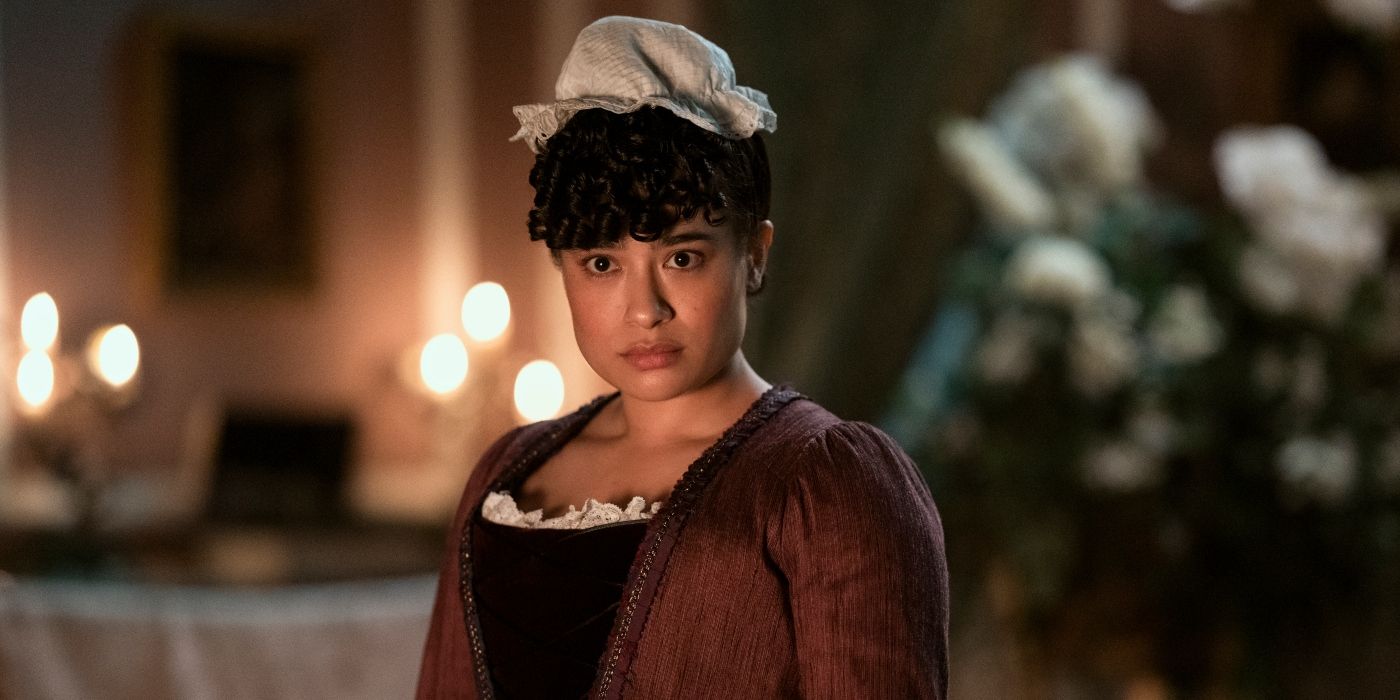
.jpg)
